By Stephen Wilson
Russell wraps his hands around a warm Wawa coffee. Wracked with arthritis, the knuckles on each finger splay in different directions so that it looks like his hands are made of lightning. He picks up the coffee and takes a sip.
Beau Bosch ’18 and Sarah Blitz ’20 brought the morning treat. For weeks, these two aging studies students have visited Russell at Gracedale Nursing Home every Tuesday from 9-11 a.m.
“I’d be lost without them,” he says. “And not have good coffee.”
Spread on the table before them are coffee cups, a laptop, two spiral-bound notebooks, and a pocket folder crammed with scraps of paper. Taped on one of the spiral pads is a white sheet of typing paper. Written on it in shaky script is “The Story of My Life.”
Without missing a beat, Blitz opens the laptop, and Russell starts talking about a tower he played on as a boy.
“During World War II, volunteers took shifts to watch for enemy aircraft,” he says. “We played there as kids.”
Blitz is typing away while Bosch asks a question: “Were enemy planes really a concern that you would build a watchtower in Bethlehem?”
Russell explains more, and soon all three are figuring out where to place that anecdote within the 53-page autobiography.
The rest of the morning has Bosch reading chapters out loud while Russell adds details and Blitz fixes errors.
“The trouble with me is I can remember what I did years ago, but not what I did yesterday,” Russell says.
Seeing what Russell is experiencing is one of the goals of the class. Lyssa Gagnon, a part-time clinical neuro-psychologist at Lehigh Valley Health Network and instructor for Introduction to Aging Studies, hopes the 10 hours of on-site observations can help shift the bias and stereotypes that exist around aging.
“Many students have little to no contact with older adults,” Gagnon says. “So we strive to analyze our own bias and then learn about the physical, social, political, and emotional aspects of aging.”
Students in the class participate in empathy exercises like taping their fingers together, then trying to tie their shoes. Guests visit the class, including one from the Easton Social Security office who explains how to navigate government systems and processes.
“60 isn’t 90,” Gagnon says. “Aging involves a 30-40-year span when aspects of the mind and body can shift slowly or radically.”
To expose students to those shifts, on-site observations occur at different facilities.
“We want students to experience the range of aging populations,” says Elaine Reynolds, associate professor of biology and neuroscience and director of the aging studies program. “And bring that experience into the classroom.”
Students might be working with seniors at an adult day care program at Third Street Alliance, in long-term residential care at Gracedale, and at an activity center at Easton Area Lifestyle Campus (EALC).
What looks like a dilapidated restaurant on Sullivan Trail in Forks Township hides the activity center. Inside it is decorated for fall with leaves, pumpkins, scarecrows, and a few remnants from what must have been Oktoberfest—plastic beer mugs and paper pretzels dangling above the dance floor.
They have it all … an elevated stage, kitchen, pool tables, book nook, DVD collections, and display cases for craft projects.
It is after lunch so the crowd has thinned, but program director Debbie Mertz is still bustling around while two tables of older women chat.
Sitting among them are Adriana Pero ’19 and Kristen Taylor ’19. Past visits have had the students involved in activities like bingo, but today is all conversation.
“So you volunteer to talk to old people?” asks Rose.
“Speak for yourself,” retorts Helen.
“We are once a woman and twice a child,” Ann adds.
“Oh my God, I look just like my mother, that’s when I knew it was time to go someplace,” says Rose.
“I didn’t want to be by myself,” says Ann. “I was in a shell, and it was time to do something else.”
“I came here to be with you,” says Helen, looking at the students.
The banter is fun, the advice is plentiful, and the students are good listeners.
“I am attracted to aging studies because of its mult-disciplinary nature,” says Taylor. “The field combines psychology, sociology, economics, and physiology.”
While Pero also has an academic interest in neurodegenerative disorders, it was born in a more personal place.
“My grammy had Parkinson’s disease,” she says.
Students can use family-related concerns to jump into the class. That was the case for Charlie Kelly ’19. Like Pero, Kelly had a grandfather with Parkinson’s. As his family considered long-term residential care options, his grandfather fought against it.
“There is a belief that patients aren’t treated well or receive good care in such a facility,” says Kelly. “I thought this class could help me to verify or challenge that belief.”
Kelly sought a long-term care facility and also was assigned to Russell. Over the course Kelly nearly doubled the required hours as he met with Russell and typed dictation.
“I had taken a journalism class and found the skills from it helped me to draw out more details from Russell’s life story,” he says.
Journalism and aging studies courses for a mechanical engineering major and economics minor seem like an eclectic mix.
“I want to be well-rounded,” says Kelly. “I started at age 15 as a volunteer at my hometown’s fire department and have served at the College as an RA [residence adviser] and pre-orientation service program leader.”
Kelly learned how powerful a friendship can become while working on a life story. “When aging, there comes a satisfaction of sharing your story with others,” says Kelly. “And Russell has a good story.”
Sitting in his scooter, Russell takes occasional sips of coffee as Bosch reads. He covers Russell joining the Army, becoming a cook in the service, getting married, divorced, and married again, becoming a father, fighting with his kids, and later reconciling with them.
At 90 years old, Russell is honest with himself. “I know I will be here until I die, which I fully accept,” he says. “But I’m not going anywhere yet. This book is going to take at least another year before I finish.”
The book seems to give him meaning beyond the walls at Gracedale. “I’m not sure what I’d do without it,” he says. “My grandson is proud that I am writing it. He will say, ‘You are the only Papi I have left. Without your book, we will never know this stuff.’”
The stuff gets interesting during his work years. Russell was cook for 50 years at various fraternities and sororities at Lafayette College and Lehigh University. Over the years, he became a surrogate parent to many young men and women.
“I cooked three meals a day for $60 a week at Delta Tau Delta at Lafayette,” he says. He has stories about rivalry week, hell week for new pledges, and food he made well and items he was asked to never make again.
While the wild times are memorable, he is more fond of the moments when he helped students in need by listening, aiding and abetting, and giving what he could. The students remember his loyalty and have paid it back tenfold. They pitched in to buy him the scooter he needed. They made him a scrapbook for his 90th birthday. They vow to publish his book.
“I’ve had fun and I’ve caused pain, but I have had a blessed life,” he says.
He passes that blessing on to the students who visit him. They in turn share their talents. Both listen. Both learn. All are thankful.
Ann at the EALC says it best as she enters the debate about what approach in life is best—willpower, love, or generosity. She recounts how she sewed clothes for her neighbors as a child. Then how she counted on help from others as she raised her three sons.
“I worked hard to help others,” she says. “I love you and I care—that’s all any of us need to hear in order to be cheerful and thankful.”
“Sounds like a good way to go through life,” Pero says.
It does indeed.
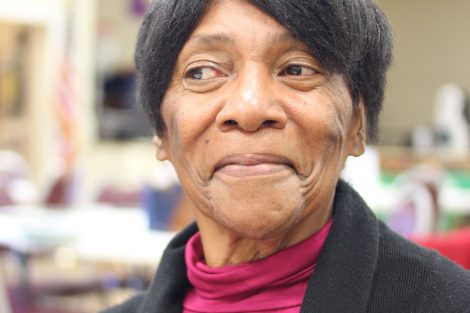
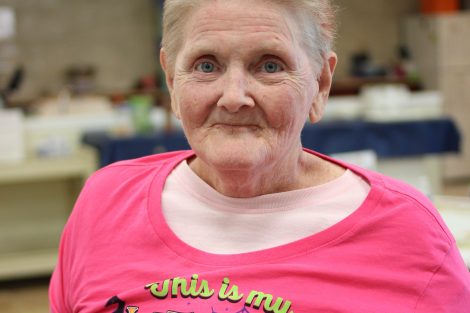
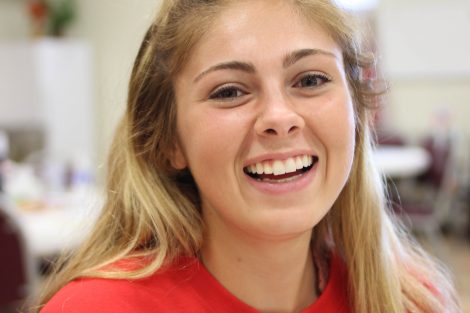
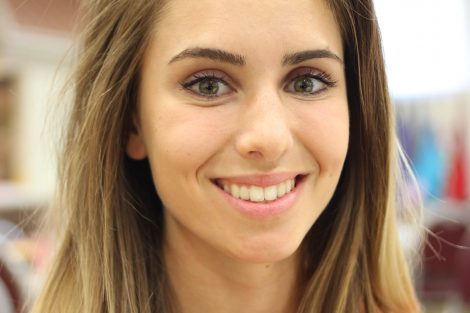
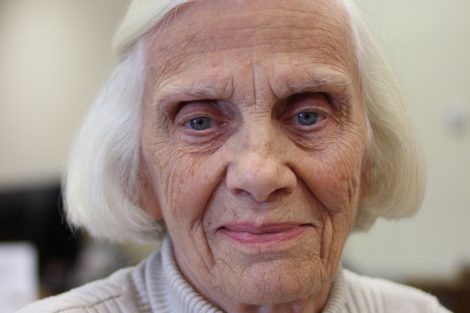
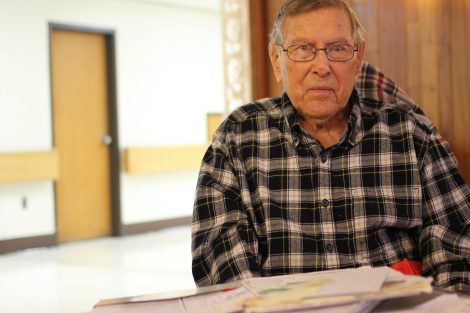
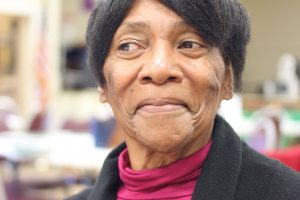
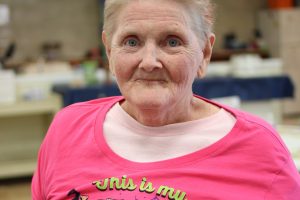
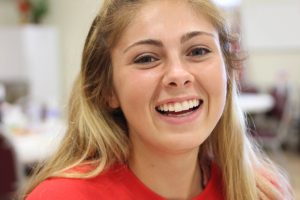
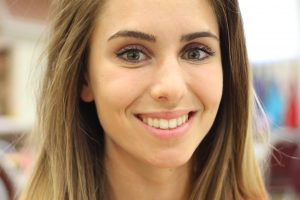
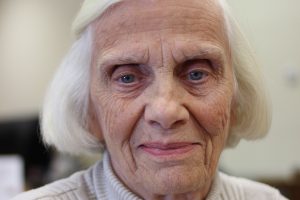
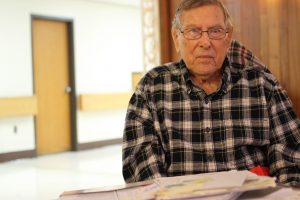
1 Comment
As a caregiver of elderly since I was 11, the last 43 yrs have been a blessing and great teacher of life. I love that this program is being implemented ! I wish all the students memories they will never forget! So proud of all of them.
Comments are closed.